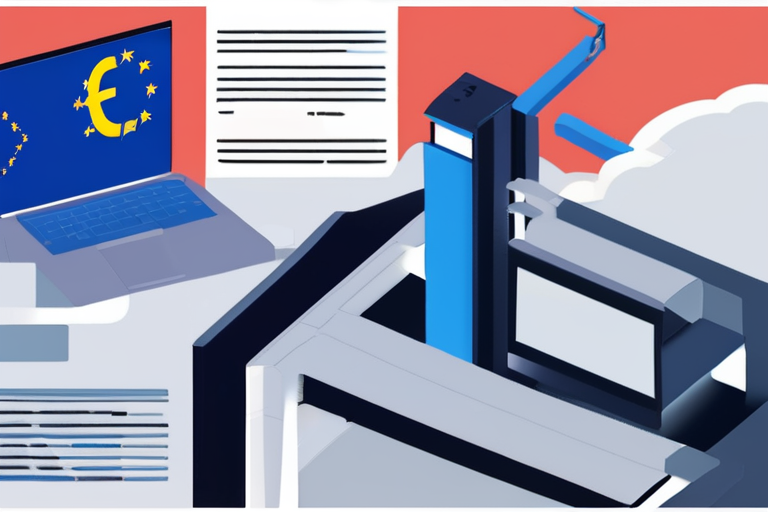GERMAN STATE OF SCHLESWIG-HOLSTEIN MAKES HISTORIC SHIFT TO FOSS GROUPWARE
BERLIN, GERMANY - In a major breakthrough for digital sovereignty, the German state of Schleswig-Holstein has successfully migrated its MS Outlook mail and groupware setups to an open-source solution using Open-Xchange and Thunderbird. The move, which took half a year to complete, marks a significant milestone in the state's efforts to reduce costs and increase independence from proprietary software.
According to Heise, a leading German IT news outlet, stakeholders consider the migration a resounding success, with officials hailing it as a major step towards digital sovereignty. "This move is a testament to our commitment to innovation and cost-effectiveness," said a spokesperson for the state government. "We're proud to be pioneers in this field and look forward to reaping the benefits of open-source technology."
The migration was carried out by a team of experts from the state's IT department, who worked tirelessly to ensure a seamless transition. The new FOSS solution is expected to save the state millions of euros in licensing fees and maintenance costs.
Schleswig-Holstein's move comes at a time when governments around the world are increasingly turning to open-source solutions as a means of reducing dependence on proprietary software. In 2019, the city of Munich, Germany, made headlines by switching its desktop PCs to Linux, citing cost savings and improved security.
The shift towards FOSS groupware is also seen as a significant step forward for digital sovereignty in Europe. "This move demonstrates that even large-scale government institutions can successfully adopt open-source solutions," said Dr. Hans-Joachim Backer, a leading expert on open-source technology. "It's a major victory for the open-source community and sets an important precedent for other governments to follow."
As Schleswig-Holstein looks to build on this success, officials have announced plans to migrate their desktop PCs to Linux as the next major step in their digital transformation journey. The move is expected to be completed by 2025.
In related news, the city of Berlin has also expressed interest in adopting open-source solutions for its government institutions. "We're closely monitoring Schleswig-Holstein's progress and are eager to learn from their experience," said a spokesperson for the city government. "Open-source technology offers a wealth of benefits, including cost savings and improved security, and we believe it has a key role to play in our digital transformation strategy."
As governments around the world continue to grapple with the challenges of digitalization, Schleswig-Holstein's pioneering move serves as a beacon of hope for those seeking to reduce their dependence on proprietary software. With its commitment to FOSS groupware and Linux desktop PCs, the state is setting a new standard for digital sovereignty in Europe.
Background:
The German state of Schleswig-Holstein has a population of approximately 2.8 million people and is located in the northernmost part of Germany, bordering Denmark. The state's IT department has been at the forefront of efforts to adopt open-source solutions, with officials citing cost savings and improved security as key drivers.
Context:
The shift towards FOSS groupware and Linux desktop PCs is part of a broader trend towards digital sovereignty in Europe. As governments seek to reduce their dependence on proprietary software, open-source solutions are increasingly being adopted as a means of reducing costs and improving security.
Perspectives:
Dr. Hans-Joachim Backer, leading expert on open-source technology: "This move demonstrates that even large-scale government institutions can successfully adopt open-source solutions."
Spokesperson for the state government: "We're proud to be pioneers in this field and look forward to reaping the benefits of open-source technology."
Current Status and Next Developments:
The migration to FOSS groupware is now complete, with officials hailing it as a major success. The next major step will be the migration of desktop PCs to Linux, which is expected to be completed by 2025.
*Reporting by Linux.*



 Hoppi
Hoppi

 hoppi
hoppi

 Hoppi
Hoppi

 Hoppi
Hoppi

 Hoppi
Hoppi

 Hoppi
Hoppi











